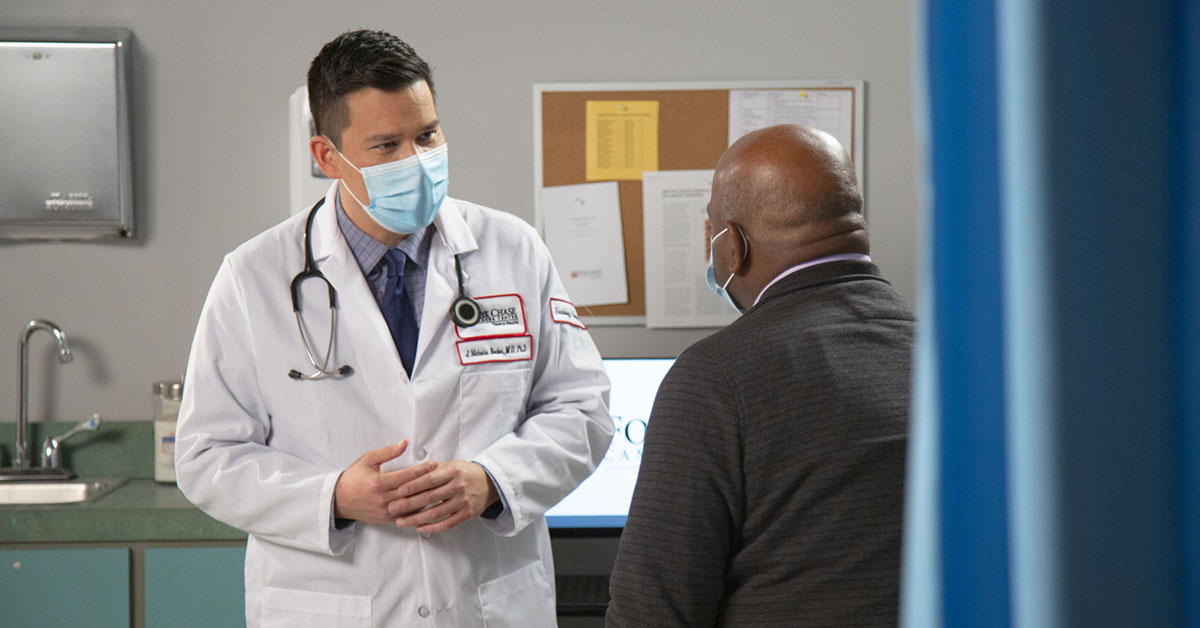
PHILADELPHIA (April 4, 2022)—Nonsmokers with the two most common types of driver-gene mutated lung cancer have higher levels of the estrogen derivative 4-OHE, according to early data from researchers at Fox Chase Cancer Center, which will be presented at the American Association for Cancer Research (AACR) Annual Meeting 2022 on April 8-13, 2022.
Previous studies have strongly suggested that 4-OHEs contribute to lung tumorigenesis. However, this new research is the first to focus on its role in lung cancer patients who have never smoked.
“We are seeing more and more patients in our clinics diagnosed with lung cancer who have no smoking history. And the scary thing is, we don’t exactly know what causes it,” said J. Nicholas Bodor, MD, PhD, MPH, an assistant professor in the Department of Hematology/Oncology and co-founder of the Never Smokers Lung Cancer Clinic at Fox Chase.
The percentage of lung cancer cases found among never-smokers is increasing and currently represents between 10% and 20% of lung cancer patients in the United States. In addition, never-smoker lung cancer disproportionately affects women compared to men at a rate of two to one.
That’s one reason Bodor and the lab of Margie Clapper, PhD, deputy scientific director and co-leader of the Cancer Prevention and Control research program at Fox Chase, have focused on the role hormones may play in the disease.
Other researchers have studied the role of estrogen in lung cancer, but the Fox Chase team is the only group to look specifically at metabolized estrogen derivatives like 4-OHEs, which are known to be probable carcinogens. Previous studies by Clapper have found higher levels of 4-OHEs in lung tumors and in the urine of people with lung cancer.
Researchers homed in on never-smokers with oncogene-driven lung cancer, which is cancer caused by a gene mutation, for the new study. They focused on the two most common mutations, called EGFR and ALK, and limited the study to men over the age of 50 and postmenopausal women to reduce the chance of natural hormone fluctuation.
“We found that the putative carcinogen 4-OHE appears to be higher in the urine of patients with EGFR and ALK lung cancer as compared to cancer-free individuals,” Bodor said.
He noted that, due to the study’s small size—44 patients—the results did not reach statistical significance. However, recruitment is ongoing to expand the study, and Bodor said the findings were strong enough that the team wanted to share their preliminary data.
“We’re presenting on this relatively modest number of patients, but we continued to accrue more participants to this study,” he said. “Eventually, when we have a sufficient number of patients to make more definitive conclusions, we anticipate these trends to get stronger.”
He added that the researchers would expand future studies to include premenopausal women, especially given that never-smoker lung cancer tends to affect people at a younger age.
Bodor noted that the team’s research was closely connected to their work with patients at the Never Smokers Lung Cancer Clinic. “Everything we do here at Fox Chase is ultimately to come up with better treatments or prevent this disease. While this evidence is very exciting, we can’t celebrate until we can actually make a difference in the lives of patients.”
The study, “Catechol Estrogen Profiles of Patients with EGFR- and ALK-Positive Non-Small Cell Lung Cancer,” will be presented in a poster session.